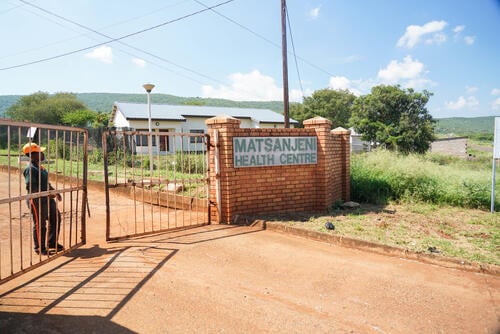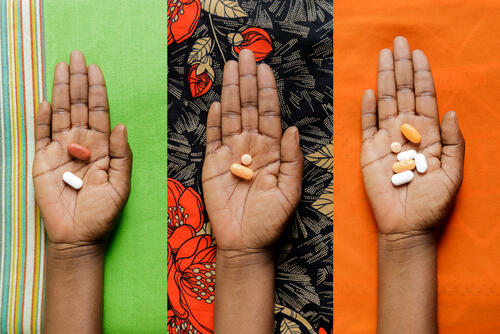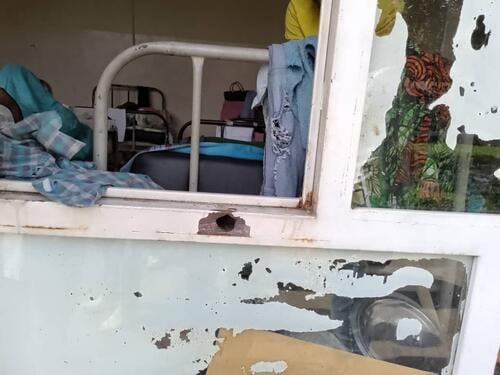As Médecins Sans Frontières (MSF) prepares to leave the Shiselweni region after 16 years of work, its project in Nhlangano draws to a close. However, to ensure the continued success of the Shiselweni HIV and tuberculosis (TB) programme, our teams in Eswatini remain dedicated to working with the country’s Ministry of Health.
To mark the journey of our work in the area since 2007, Bernhard Kerschberger, MSF head of mission, summarises the five key facts about MSF’s medical operations in the country.
1. The evolution of HIV and TB treatment in the Shiselweni region
One of the most significant ways that healthcare has evolved over recent years is in the treatment and management of HIV and TB. In 2007, when our teams arrived in the Shiselweni region, there were only three hospitals that offered treatment for these diseases. Now, however, clinics throughout the region are equipped to provide patients with the care they need.
In addition to increased access to treatment, people's understanding of these diseases has also improved. Previously, there were many myths surrounding HIV and TB, but now people have access to accurate information and understand how to prevent and manage these diseases.
Adherence to treatment has also been a significant factor in improving outcomes for patients. In the past, poor adherence to medication regimes was a common cause of death, often due to the difficulty of taking older medications with more side effects. However, with the development of newer, more effective medications with fewer side effects, patients are now better able to adhere to their treatment plans.
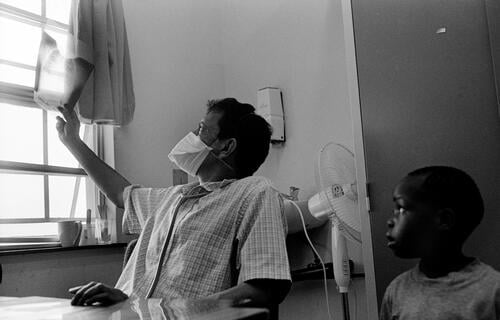
2. Training healthcare workers and targeting hard-to-reach communities
In 2007, when we started work in the Shiselweni region, one of our primary focuses was to decentralise healthcare services. This involved training healthcare workers on how to test and treat both HIV and TB, as well as how to communicate with the community about stigma and prevention. We worked with local health authorities to identify and target the most vulnerable communities, many of whom were in remote locations that required hours of walking to reach the nearest clinic.
Overall, our efforts to decentralise healthcare services in Eswatini have been successful. Patients in remote communities are now able to access testing and treatment for both HIV and TB. Additionally, the information provided to these communities has dispelled myths surrounding the diseases, resulting in increased understanding of prevention and treatment.
Through working with local health authorities and prioritising the needs of patients, we have made a significant impact on healthcare, not only in the Shiselweni region but across Eswatini.
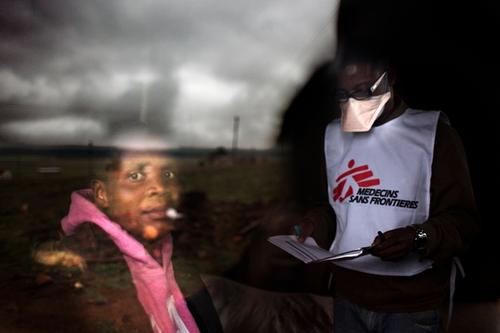
3. Innovative and comprehensive treatments
MSF's culture of encouraging innovation has allowed us to introduce developments at a much faster pace than one might expect. One such example is our response to the COVID-19 pandemic. While many organisations were still planning interventions, we were the first and only medical organisation to introduce home-based care for patients with TB, saving them from having to travel to health facilities and risk exposure to the virus.
This pattern of innovation has been consistent over the years. We have been able to introduce comprehensive and early treatment for patients living with HIV, HIV self-testing, video-observed therapy for patients with TB, and new approaches to the diagnosis and treatment of sexually transmitted infections. We developed these interventions in the Shiselweni region and then scaled them up across the country.
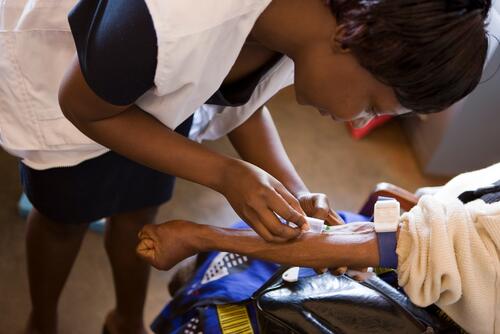
4. Maintaining links with Ministry of Health to address emerging needs
To ensure a smooth transition from the Shiselweni region to the Manzini region, we are working closely with local health authorities and other stakeholders to ensure that the initiatives we have implemented over the years continue to work for patients in need.
In recent years, we have noticed a growing need for sexual health services, including testing and treatment for sexually transmitted infections, as well as family planning services. We are also aware of the increasing incidence of sexual and gender-based violence as a result of economic challenges faced by the poor and we are working to provide care and support for victims of this violence.
Our team remains dedicated to providing high-quality healthcare services to those who need them most, and we will continue to work closely with local authorities to ensure that our programmes are responsive to the needs of the community.
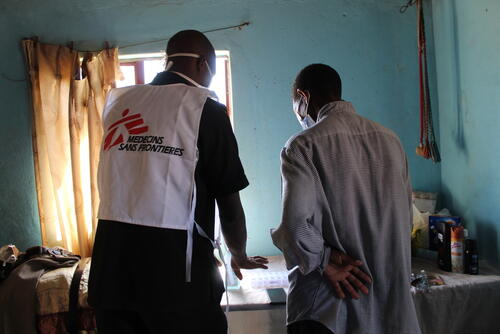
5. Locally hired MSF staff key in fight against stigma
One of the most rewarding aspects of our work has been the hiring and training of members of the local community who were living openly with HIV. We recognised that these individuals were uniquely qualified to fight the stigma surrounding HIV and could serve as powerful role models for other patients.
We provided them with training in counselling, and they became known as "expert clients" who could offer support and guidance to other patients.
These expert clients became an integral part of our team and played a crucial role in connecting with patients on a personal level. Many of them stayed with us for years and became the unsung heroes of our programme.
As we transition from the Shiselweni region to the Manzini region, we hope to continue to hire and train members of the community to serve as expert clients. We believe that this approach is crucial to ensuring that patients receive the support they need and that our programmes remain rooted in the local community.
My key message to our teams and partners is: thank you. None of these initiatives would have seen the light of day without such good and productive collaboration.



